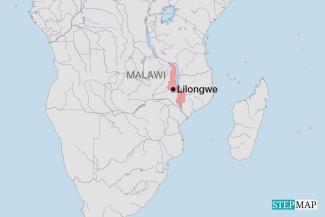Inflation
Malawi struggles with rising costs of essentials

Malawi’s economic outlook has been difficult since several years. A severe drought in 2024 worsened the macroeconomic imbalances and contributed to repeated crop failures and high food prices. According to the World Bank, 70 % of the population are living in extreme poverty, and food insecurity continues to obstruct poverty reduction efforts. Additionally, global prices for basic commodities have soared since Russia’s invasion of Ukraine. Like other countries, Malawi depended heavily on grain imports from Ukraine before the war, making it particularly vulnerable to global supply shocks.
The situation has led to anger and despair among Malawians. Prices for essential goods such as maize and cooking oil have increased immensely. Street vendors and traders took to the streets in protest. A bag of maize, Malawi’s staple food, now costs over 100,000 Kwacha ($ 58), which exceeds the country’s minimum monthly wage.
Inflation, imports and informal markets
Stafford Mtanja, 27, a father of three, regularly shops at Limbe market in Blantyre. “We can no longer afford three meals a day. A loaf of bread now costs 2,700 kwacha ($ 1.60). The only relish we can manage is soya chunks, with just one tomato. Tomatoes have become too expensive,” he says. Looking visibly tired, he adds: “We’re surviving by doing piecework, but no matter how much I try, the money isn’t enough to feed my family.”
Bertha Bangara-Chikadza, President of the Economics Association of Malawi (ECAMA) notes that the country’s ongoing foreign exchange shortage has added to the difficulties. The country relies heavily on imports, making access to foreign currency essential . But because demand is higher than supply, the black market for foreign currency has flourished, which in turn is driving up the prices of essential goods. “The gap between the black-market rates and the rates of the formal financial sector has widened because the regular institutions have been unable to meet the high demand for foreign exchange. People have turned to the informal markets instead,” explains Chikadza.
The government has made attempts to bring inflation under control and to stabilise the currency situation. It has launched a crackdown on illicit forex trading, and large sums of cash were confiscated from private hoarders.
Hoping for recovery with new reforms
Yet challenges remain. Malawi’s geographical location as a landlocked country makes it dependent on its neighbours. The recent violence in Mozambique has disrupted trade routes and affected fuel imports, which in turn had effects for prices and transport.
Malawi’s Finance Minister Simplex Chithyola Banda recently outlined a series of measures to stabilise the economy in his presentation of the next national budget. These include renewed efforts to dismantle black-market currency networks, a ban on the import of non-essential goods that could be produced domestically and a range of incentives to support local businesses and encourage production.
Charles Pensulo is a freelance journalist based in Lilongwe.
charlespensulo@gmail.com














